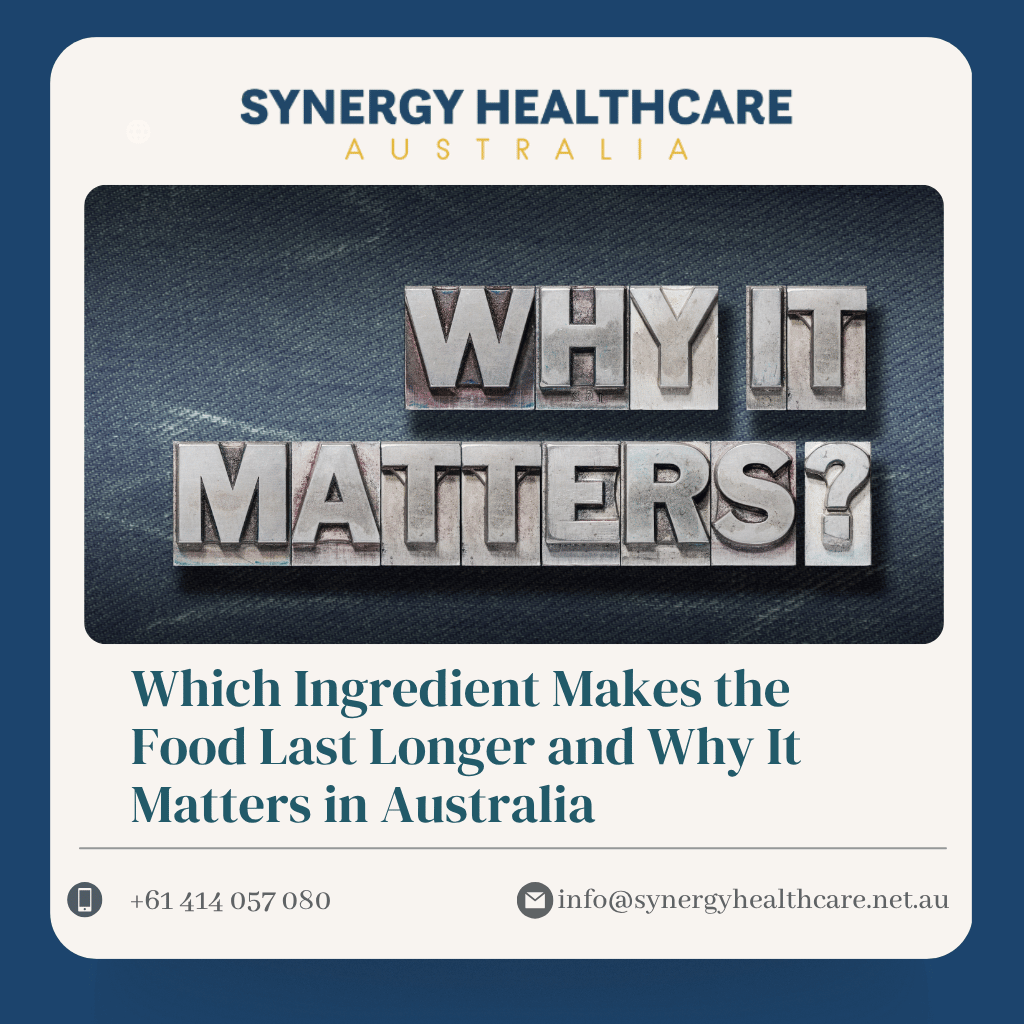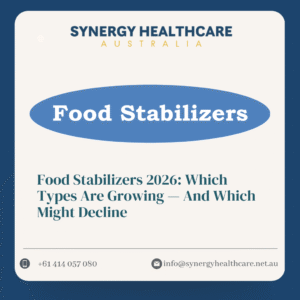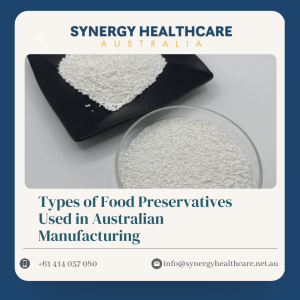Ever wondered which ingredient makes the food last longer—especially in a country like Australia where heat and humidity often shorten shelf life? Whether you’re a home cook trying to store leftovers or a manufacturer producing ready-to-eat meals, food preservation is a major concern.
From pantry staples to professional solutions, let’s explore the top ingredients and natural additives that extend food freshness. You can also source high-quality preservatives through trusted food additives wholesale suppliers to ensure compliance with food safety regulations in Australia.
Why Preserving Food Matters More Than Ever
In 2024, the Australian food waste tally hit nearly 7.6 million tonnes annually, according to the Department of Climate Change, Energy, the Environment and Water (DCCEEW). Much of this waste happens due to spoilage caused by improper storage or lack of preservation.
Preservatives—whether natural or artificial—help to:
- Prolong shelf life
- Maintain nutritional value
- Prevent bacterial or mould growth
- Reduce food waste
Top Ingredients That Help Food Last Longer
1. Salt
Salt has been used for centuries as a natural preservative. It works by drawing out moisture and preventing microbial growth. Commonly used for preserving meats, pickles, and fish.
Best For: Meat, fish, pickled vegetables
Preservation Style: Dehydration and microbial control
2. Vinegar (Acetic Acid)
The acidity of vinegar prevents the growth of spoilage organisms. It’s often used in pickling and marinades for both flavour and preservation.
Best For: Pickles, chutneys, sauces
Preservation Style: pH reduction
3. Citric Acid
Naturally found in citrus fruits, citric acid is a powerful antioxidant that slows down spoilage and maintains colour and taste in foods.
Best For: Beverages, canned food, jams
Preservation Style: Acidification and antioxidant
4. Sugar
Like salt, sugar reduces water activity in foods, making it harder for bacteria to grow. Used in jams, preserves, and sweet sauces.
Best For: Jams, syrups, canned fruits
Preservation Style: Water activity control
5. Ascorbic Acid (Vitamin C)
A natural antioxidant, it delays food oxidation and discolouration, especially in fruits and processed meat products.
Best For: Juices, canned fruits, cured meats
Preservation Style: Antioxidant
6. Sorbic Acid and Potassium Sorbate
These are safe chemical preservatives approved by FSANZ, used to prevent mould, yeast, and fungi.
Best For: Cheese, baked goods, salad dressings
Preservation Style: Antimicrobial
7. Calcium Propionate
Commonly added to bread and bakery products to prevent mould and bacterial spoilage.
Best For: Breads, pastries
Preservation Style: Anti-fungal
Natural Alternatives for Home Cooks
If you’re looking for home-friendly options to make your food last longer:
- Freeze herbs in olive oil
- Store berries with vinegar wash
- Add lemon juice to guacamole to prevent browning
- Use glass containers to reduce oxidation
How Ingredients Affect Shelf Life in Different Foods
| Food Type | Ingredient Used | Expected Shelf Life Extension |
| Bread & Pastries | Calcium Propionate | 3–5 days |
| Pickles | Vinegar, Salt | Up to 6 months |
| Jam & Preserves | Sugar, Citric Acid | 3–12 months |
| Juices | Ascorbic Acid, Citric Acid | Up to 30 days (refrigerated) |
| Cheese | Potassium Sorbate | +7 to 14 days |
Preservatives in Australian Food Regulation
In Australia, food preservatives are regulated under Standard 1.3.1 of the Food Standards Code. Common additives like sorbic acid, nitrates, and sulphites must be used within permitted limits and disclosed on packaging.
Food producers and hospitality businesses are encouraged to partner with food ingredients suppliers in Australia who provide FSANZ-compliant solutions.
Common Misconceptions About Preservatives
- Myth: All preservatives are harmful
Fact: Many preservatives (like vinegar and citric acid) are natural and safe. - Myth: Preservatives ruin the taste
Fact: When used correctly, they have little to no effect on flavour. - Myth: Homemade food doesn’t need preservatives
Fact: Natural methods (salt, sugar, vinegar) are essential even at home for safe storage.
The Role of Temperature and Packaging
Preservation is not just about ingredients. To make food last longer:
- Store perishables below 5°C
- Use vacuum sealing or airtight containers
- Keep moisture-sensitive items like biscuits in dry environments
- Label leftovers with preparation dates
Future Trends in Food Preservation
- Clean-label preservatives: Growing demand for plant-based, recognisable ingredients
- Biodegradable packaging: Materials that extend shelf life while reducing plastic
- AI-assisted shelf-life tracking: Tech-driven freshness prediction for retailers
According to Allied Market Research, the global food preservative market is expected to reach USD 3.6 billion by 2030, with Australia contributing significantly due to its growing packaged food and health-conscious sectors.
Conclusion
So, which ingredient makes the food last longer? The answer depends on the food type, but natural options like salt, vinegar, citric acid, and sugar remain powerful and safe choices. For larger-scale use, modern food-grade additives like potassium sorbate or calcium propionate ensure food safety without compromising health.
With rising awareness around food waste, safe consumption, and sustainability, choosing the right ingredients and partners like trusted food additives wholesale suppliers can make all the difference.
FAQs
Q1. What is the most effective natural preservative for food?
Salt is one of the oldest and most effective natural preservatives. It removes moisture and prevents microbial growth.
Q2. Are food preservatives safe to consume?
Yes, most are safe when used within approved FSANZ limits. Many preservatives are naturally occurring or plant-based.
Q3. Which ingredient helps fruits last longer?
Ascorbic acid (Vitamin C) and citric acid help preserve colour and delay spoilage in fruits.
Q4. Can I make food last longer without chemicals?
Yes, you can use salt, sugar, vinegar, and freezing techniques to preserve food naturally at home.
Q5. Where can I buy food preservatives in bulk in Australia?
You can buy high-quality, FSANZ-approved preservatives from food additives wholesale or trusted food ingredients suppliers in Australia.








